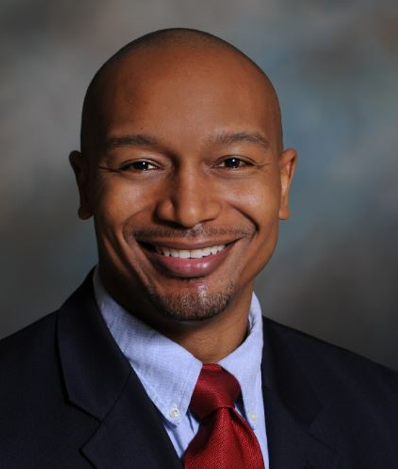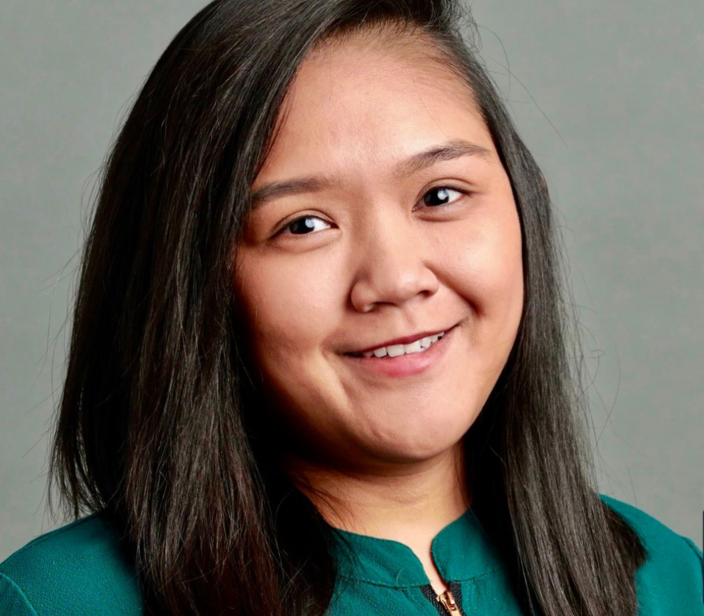Vascular Surgery Residency
A Message from our Program Director
Welcome to the University of Minnesota Vascular Surgery Integrated Residency website! We are delighted to provide you with information about our division and our training programs.

Our division offers two ACGME-accredited training pathways for individuals seeking careers in vascular surgery. The integrated program is a five-year residency for graduates of accredited medical schools. The independent program is a two-year fellowship for graduates of ACGME accredited general surgery residency programs. Graduates of both programs are eligible to become certified by the Vascular Surgery Board of the American Board of Surgery.
Our faculty and staff are dedicated to providing the best possible experience for trainees in both programs. Our educational curriculum combines clinical, didactic, and technical components to ensure that graduates are equipped with state-of-the-art vascular knowledge and skills. The clinical rotations are based at five separate hospitals, providing exposure to highly diverse patient populations with a wide range of vascular pathology. Senior integrated residents and vascular fellows rotate on separate services, so there is no competition for cases. Graduates of both programs are highly trained vascular surgeons with expertise in open operations, endovascular procedures, noninvasive laboratory interpretation, and medical treatment of vascular disease. See an example of a recent fellowship graduate's case experience here.
The University of Minnesota is located in Minneapolis, which is adjacent to St. Paul -- both fantastic places to live! The “twin cities” are frequently ranked in the top ten places to live in the country due to excellent value and high quality of life. In addition to a wide range of cultural, sports, and entertainment venues, there are tremendous opportunities for outdoor activities during all four seasons.
Program Director for Vascular Surgery Fellowship and Residency
Interim Vascular and Endovascular Surgery Division Chief
Derrick Green, MD, MBA
Phone: 612-625-1485
Fax: 612-626-4150
Division Chief's Message
Welcome to the University of Minnesota Vascular training program! As Director of Vascular Services across M Health Fairview, I believe we have one of the most comprehensive training programs in the country due to our diversity of locations, patients, and experiences in Vascular Surgery. Our team of vascular surgeons work together across the system ensuring a consistent experience for our trainees both in the elective and emergent settings. Exposure to different patient populations and unique ethnic groups bring an incredible wealth of opportunity to our vascular surgery training programs across the four M Health Fairview Hospitals you will rotate at - St John's, Woodwinds, Southdale, and University Medical Centers. Our Veterans Administration Medical Center in Minneapolis is consistently ranked among the top 5 VA hospitals in the United States with two state-of-the-art hybrid operating rooms. You will find all of our vascular surgery faculty highly engaged in ensuring your success in the clinic, the endovascular suite, the operating room, and the non-invasive vascular lab. We're delighted you are here and look forward to your continued success.
Program Director for Vascular Fellowship and Residency
Interim Vascular and Endovascular Surgery Division Chief
Derrick Green, MD, MBA
Phone: 612-625-1485
Fax: 612-626-4150
Overview
The ACGME-approved, five-year residency program at the University of Minnesota leads to certification in vascular surgery. We are approved for one slot in each year of the program, and our first resident began training in July 2020. The program is designed to train expert vascular specialists proficient in medical, endovascular and open surgical treatment of patients over the entire spectrum of vascular disease. The finishing vascular resident will have had broad exposure to cutting edge technologies and research. Graduates will be well prepared to enter practice in the private or academic setting.
Applications to the program are available to fourth-year medical students through the standard application and matching pathways (ERAS and NRMP). The first two years of the program are devoted to core surgical training, during which time the residents complete general surgery rotations. The first two core years also include rotations in colon and rectal surgery, burn, thoracic surgery, and cardiac surgery. The majority of third-year rotations are on vascular surgery, but also include rotations in interventional radiology and transplant. The remaining two years are devoted exclusively to vascular surgery training.
The program includes opportunities for clinical research at all levels. Residents are encouraged to choose a research project before the fourth year of training and to work with a faculty research mentor towards publication. If the project is accepted for presentation at a local, regional, or national meeting, resident authors will be sponsored to attend the meeting and present their work.
For additional program information, please view our expanded listing available on FREIDA Online, search Program ID: 4512600062.
How to Apply
Eligibility Requirements
Accreditation Council for Graduate Medical Education (ACGME) Eligibility Requirements Effective July 1, 2023. See page 18.
Application Process
Our program participates in the Electronic Residency Application Service (ERAS). Applicants must submit their application documents electronically via the Dean's Office Workstation or, if a foreign medical graduate applicant, the Educational Commission for Foreign Medical Graduation (ECFMG).
The J-1 alien physician visa sponsored by ECFMG is the preferred visa status for foreign national trainees in all UMN graduate medical education programs; therefore, the Program sponsors only J-1 visas. We do not sponsor H-1B visas. More information on the J-1 visa can be found on the UMN-GME J-1/J-2 Visas webpage.
Questions? Please contact the Program Administrator at vasculared@umn.edu.
Curriculum
Each Thursday morning is devoted to didactic training activities in vascular surgery. During this "protected time", fellows and residents are exposed to a series of formal conferences:
Multidisciplinary Conference (first and second Thursdays 0700-0800). These one-hour preoperative planning conferences are held 0700-0800 on the first and second Thursdays of each month. Participants include attendings from vascular medicine, cardiothoracic, interventional radiology, and vascular surgery services as well as vascular trainees. Cases are presented and discussed from the perspective of all four disciplines. The UMMC chief resident or fellow presents cases on the first Thursday, and the chief or fellow from the VA presents cases on the second Thursday. The conference is held on a city-wide basis and transmitted to all sites via Zoom.
Divisional Morbidity and Mortality Conference (third and fourth Thursday 0700-0800). A review of all current complications and deaths is held 0700-0800 on the third and fourth Thursdays of each month. The University of Minnesota Medical Center and Fairview Southdale services are assigned the third Thursday block, and HealthEast and VAMC services are assigned the fourth Thursday block. The rotating senior resident or fellow is expected to review all complications and deaths from the respective service. Discussion will include the clinical course of the complication, identification of inciting events and causative factors, and additional perspective from the published literature. The discussion will include radiological and pathological correlation of surgical specimens and autopsies as appropriate.
Vascular Conference (Thursday 0800-0900). This is a structured conference that covers basic and clinical sciences fundamental to vascular surgery, as well as in the technological advances that relate to vascular surgery and the care of patients with vascular disease. The course covers the lecture series topics in a planned, two-year curriculum. The one-hour conferences are held three out of four weeks each month, and topics are assigned in advance based on the curriculum outlined in VSCORE. Trainees prepare and deliver approximately 80% of the lectures, while the remainder are given by attendings from the vascular services or faculty from other services who deliver lectures in their particular areas of expertise.
Journal Club (first Thursday 0800-0900). A regularly scheduled conference is held once each month to review recent literature.
VESAP Review Conference (third Thursday 0900-1000). This one-hour conference is held once each month to review multiple choice questions in VESAP. Questions are grouped by subjects covered in the recent vascular conference lectures. The conference is moderated by Dr. Amy Reed, editor of VESAP.
Patient Case Conference (fourth Thursday 0900-1000). This one-hour conference is held once each month. All vascular fellows meet with the program director in a Socratic forum to discuss specific clinical topics in vascular surgery. Each trainee in turn is presented with a patient case and expected to demonstrate critical thinking in a variety of clinical scenarios.
Soft Competencies Conference (fifth Thursdays 0900-1000). This one-hour conference is offered in months with a fifth Thursday. The conference will cover competency areas and other topics not addressed in other conferences such as professionalism, patient safety, personal well-being, finance planning, and fatigue mitigation.
Additional formal training occurs at other times:
MHFV Preoperative Conference (Mondays 1600-1800). Fellows and chief residents rotating at UMMC, Southdale, and HealthEast hospitals present patients scheduled for operations during the upcoming week.
Pulsatile Cadaver Lab (first and second Mondays 0700-1200). Residents rotating on the UMMC and HealthEast vascular services will join Dr. Rumi Faizer in the anatomy lab to perform vascular exposures on a pulsatile cadaver training module.
Clinical Rotations
Service rotations for both independent and integrated programs are based at four hospitals in the Minneapolis-St. Paul Metroplex:
The vascular surgery residents and fellows manage the vascular surgery clinical service at each hospital. Trainees at all levels are required to attend clinic on a weekly basis, which provides them with continuity of care and the opportunity to evaluate patients both pre- and post-operatively.
The operative experience includes rich exposure to aortic diseases, aneurysms, carotid artery stenosis, peripheral arterial disease, traumatic vascular injuries, dialysis access, and venous pathology including interventional therapy for acute and chronic deep vein thrombosis (DVT). It also provides a balanced mix of endovascular and open procedures, including thoracic aortic pathology. The vascular surgery resident is projected to acquire operative experience in more than 250 cases per year, and fellows are expected to finish the program with more than 700 cases. As trainees progress through the respective program, each is given a gradual increase in direct responsibility for pre- and post-operative patient care appropriate to his or her level, and for the performance of surgical procedures under the direct supervision of the attending vascular surgeon.
Stipend & Benefits
PGY-1 integrated program residents begin their training at a Stipend Step 1.
Additional Perks
You will be provided with the following:
- University of MN parking card
- On-site parking at participating sites
- White Coats
- Lead and Loupes
- Cue Pagers
- Hospital on-call meal stipends
- Access to the Vascular Surgical Council on Resident Education (VSCORE) Portal
- One-time reimbursement for select academic purchases (e.g. textbooks, Pegasus, prep course)
- Discounted Technology Products through U of MN Bookstore
In addition, residents have access to the University of Minnesota's on-line biomedical library, which provides free access to MD Consult, UpToDate, Stat!Ref, PubMed, and numerous online textbooks.
Faculty & Staff
Board-certified vascular surgeons serve as core faculty at all four hospitals. In addition, each hospital has assigned mid-level providers that work in tandem with vascular residents and fellows assigned to the care team.
See full listing of UMN Vascular Surgery Faculty and Staff. (PDF)
Interviews
Interviews for the 2024-2025 cycle will be held virtually. The program will be utilizing the Thalamus platform during the following dates:
November 18, 2024
December 9, 2024
The program will be hosting a trainee meet and greet on Sunday evening, November 17, 2024 starting at 6:00PM central time.
We will also be hosting an optional open house for invited applicants interested in an in person visit on Monday, February 17, 2025. RSVPs for the event will open after the program certifies the rank list. More details to follow via email to invited applicants.
Verification of Training
Requests to verify a Vascular Surgery resident's training at the University of Minnesota need to be emailed to vasculared@umn.edu or faxed to the attention of Verification Processing at 612-625-4411. For verification of subspecialty training, please contact the subspecialty directly.
To verify professional liability insurance information for a former UMN resident or fellow, find instructions on the Medical Malpractice Credentialing/Insurance Verification site.
